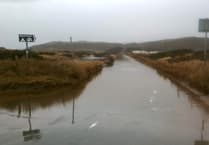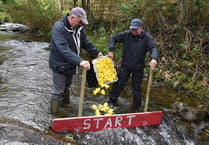An initiative that helps police find missing people with dementia quickly and safely is being re-launched across north Wales.
The Herbert Protocol is an initiative originally developed by Norfolk Constabulary in 2011, and encourages family and carers to compile useful information which could be used in the event of a vulnerable person going missing.
The Herbert Protocol initiative is named after George Herbert, a War veteran of the Normandy landings, who lived with dementia. George continually went missing from his care home and the police would have to find him.
Carers, family members and friends can complete the form in advance, recording all vital details, such as medication required, mobile numbers, significant locations relating to the
individual and a photograph. In the event of your family member or friend going missing, the form can be easily handed to the police to reduce the time taken in gathering this information.
The form can then be printed out and stored in a safe, easily accessible place in the person’s home, or kept by a family member electronically. For relatives in a care home, staff there should be contacted initially by a family member to discuss completing the form and it can then be included in an individual’s care plan.
The scheme is being re-introduced across north Wales as part of the National Dementia Action Week (15-21 May).
Superintendent Owain Llewellyn from North Wales Police said: “Every minute is crucial in tracing missing people with complex vulnerabilities, including dementia and so having this information available could be very helpful to Police.
“When a person goes missing, it is very distressing for family and friends. The Herbert Protocol encourages carers and families to record vital information on a form in advance, before a moment of crisis. Having this form to hand when a loved one is missing can speed up the search and mean the family or carers are not struggling to recall information when they are stressed.
“Over the last six months, 50 individuals who have disclosed dementia, have been reported missing to North Wales Police, so we are pleased to be working closely with partner agencies on the further expansion of this initiative and we would encourage people with dementia, families and carers across the region to use this form so that it can be provided to Police if needed.”
Working closely with the North Wales Safeguarding Board the initiative is being actively promoted whereby booklets and information leaflets are being distributed across pharmacies, hospitals, surgeries and dementia centres across the region.
Professor Tracey Williamson, consultant nurse for Dementia at Betsi Cadwaladr University Health Board, a member of the North Wales Safeguarding Board said: “There are a little over 5,000 people with a known diagnosis of dementia in North Wales and an estimated 4,800 people undiagnosed with dementia.
“As people live longer, there is expected to be a 64 per cent increase of people living with dementia in north Wales between 2017 and 2035, which would mean around 7,000 more people living with the condition.
“By working together and promoting awareness of the Herbert Protocol, we can ensure people with dementia who go missing, have the best possible chance of being found quickly. The Herbert Protocol is not just about what someone might look like or be wearing. It can have valuable information such as what language a person with dementia now uses and what name they would respond to.”
Social media users are encouraged to follow the #HerbertProtocol hashtag on social media.
The number of people reported missing to North Wales Police who have disclosed dementia are as follows:
· April 2023: 10
· March 2023: 5
· February 2023: 8
· January 2023: 10
· December 2022: 7
· November 2022: 10
An electronic version of the form is available here - https://www.northwales.police.uk/SysSiteAssets/media/downloads/central/advice/herbert-protocol/herbert-protocol-form.pdf
Further information regarding Dementia Action Week is available at https://www.alzheimers.org.uk/get-involved/dementia-action-week




